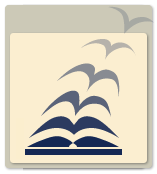DO YOU HAVE A LEARNING LOSS AND RECOVERY STRATEGY?

Kudos on a Herculean effort by dedicated teachers and students for two years to maintain workable virtual connections, effectively teach and learn relevant content, assign worthwhile activities and gather important evaluation data for grading purposes. But now we are back to in-person teaching and need to assess how much learning was lost and how we can recover. Not an easy task, due to the massive amount of variable information lost.
For example, if you lost one hour of Biology instruction every day for one school year that would equal a minimum of 180 hours of learning lost which is equivalent to 36 weeks of work. How can students recover that amount of information when the courses they are presently taking are just as demanding? There’s only so many hours in a day. If you add History, English and Math to that load, you are looking at a staggering amount of information to be recovered. Is that possible? This is an important question because many students need to pass comprehensive exams in those core courses to graduate from high school.
Many well-intended ideas offer probable solutions to this complicated problem, including extending the school day, and year to gain more valuable time but that’s very controversial. Some schools are offering ‘High Impact Tutoring’ for 90 minutes a week after school from tutors not necessarily licensed in the respective subject areas. Probably the best solution would be for students to redo the grade levels they missed to insure they make smooth K-12 transitions and meet graduation requirements. The government is investing more than $100 Billion during the next two years for ‘learning loss and recovery’ strategies and could easily fund that proposal but students affected would need to graduate two years later than normal for the next decade. Also, very controversial.
Another forward-looking potential solution are ‘Accelerated Teaching and Learning Systems’ based on solid research that speed-up the rate at which students learn by building strong cognitive foundations for learning and develop more self-sufficient students capable of creating their own learning strategies during unexpected shutdowns.
21st Century Study Skills based on SQ3R, is an accelerated teaching and learning system that teaches students how to work smarter, not harder, to achieve their full academic potential in school and beyond. Combined with computer note-taking technology and ‘whole brain’ memory techniques students master proven learning skills to store important information in their long-term memory and recall it during high-stakes tests resulting in better grades and higher GPAs. Also, acquired time management and organization skills contribute to meeting students’ needs and building an educational system more resilient and equitable during a crisis. Visit our website and contact us to learn more: http://www.21stcenturystudyskills.com/testimonials.html

